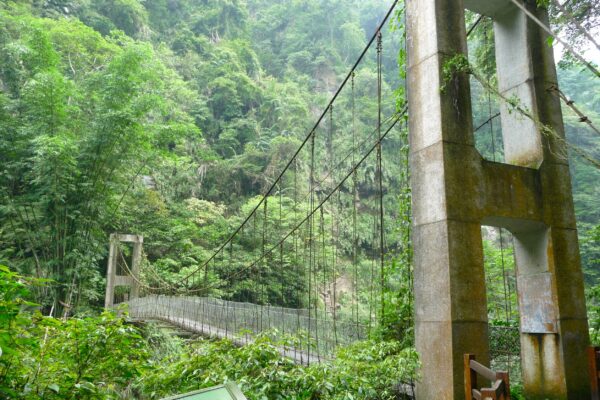Taiwan is as close to a year-round destination as exists on our planet. It’s never too cold to have fun, and even when the weather is at its hottest there are enough air-conditioned spaces and delectable cooling treats to keep everyone happy.
Sometimes it’s wet, so wet in fact that forays into Taiwan’s spectacular mountains have to be cancelled for fear of landslides. But the island’s cities are designed to cope with tropical downpours, so visitors seldom encounter problems getting from their hotel to the temple or museum they want to see. The majority of school pupils and college students get July and August off, so that’s when families tend to take trips. The beach resort of Kenting and outlying islands like Penghu can get crowded.
That said, there are a few periods which flexible travellers might want to avoid. The main one is Chinese Lunar New Year, which is the equivalent of the Christmas-New Year period in the UK. It’s a time when businesses go into hibernation, schools are shut, and public services operate with a skeleton staff. Taiwanese people tend to stay home on Lunar New Year’s Eve and New Year’s Day, then dash off to visit friends and relatives in other parts of the island. As a result, traffic can be fearsome. In the days just before the New Year, hundreds of thousands of residents from the northern cities of Taipei and Taoyuan return to their hometowns in the south. Then, four or five days into the Lunar New Year, the tsunami moves in the opposite direction.
The first day of the lunar year falls between the third week of January and late February on the Gregorian calendar. On January 29, 2025 the Year of the Snake will be welcomed with noise and exuberance. Arriving in Taiwan a week or so after Lunar New Year’s Day can work out very well, however. Not only will everyone be back at work, but it’s possible to catch the annual Lantern Festival.
There’s often a three- or four-day weekend around Tomb Sweeping Day in early April, and many Taiwanese people grab this opportunity to get a good distance from home. Expect campgrounds and B&Bs in the eastern counties of Hualien and Taitung to be booked out well in advance. If you’re not exploring Taiwan with one of our highly experienced driver-guides, you might find obtaining express train tickets between Taipei and the east rather difficult. (Slower local trains don’t require seats reservations but you might find yourself standing up for much of the journey.)
If you’re thinking of coming to Taiwan after this summer, two national (bank) holidays you should be aware of are the Mid-Autumn Festival on September 17 and National Day on October 10. This year the former falls on a Tuesday and the latter on a Thursday; you can expect a significant number of locals will take a day off so they can enjoy a four-day break.
Anyone planning to spend time in a major hot-springs resort like Jiaoxi in Yilan or Taipei’s Xinbeitou should expect bookings to become a good bit more difficult and prices to rise as temperatures drop. Whatever your priority — be it temple culture, the great outdoors, or seasonal flowers — our itinerary designers are sure to come up with a schedule that’ll surprise and delight you. Contact us today and begin planning the customised private Taiwan tour of a lifetime!

